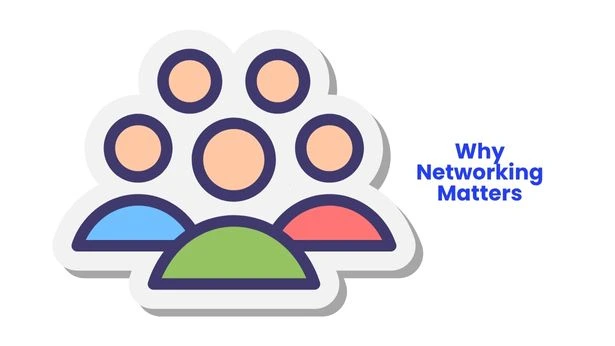3 DOs and 3 DON’Ts of Dentist Networking
When it comes to establishing a successful career in dentistry, dental networking tips can make a lot of difference. Whether you just graduated from dental school or are an associate in an office or yourself owning your own practice, networking is important in connecting with your colleagues, sharing information, and finding job opportunities.
More than just meeting people, networking is about developing meaningful professional relationships. When networking is engaged with purpose and meaning it leads to cooperation, referrals, mentorship, and sustainable growth.
In this blog, we will talk about the 3 DOs and 3 DON’Ts of networking with other dentists. We will describe what they mean, why they are important, and how you would practice them.
Why Networking Matters for Dentists

Dentistry is a profession that may feel like you’re going to work to see patients, but other dentists can also provide support along your journey to becoming a better dentist. Networking with other dentists can enable you to:
- Stay tuned to changes in the profession and emerging technology.
- Learn from the fellows with experience.
- Develop strong sources of referrals to get patients.
- Find mentors to inform your career decisions.
- Collaborate on research, community programs, or expand your practice.
What to Do and Avoid When Networking with Fellow Dentists
Building professional connections with other dentists can open doors to growth and learning. Here are the key dos and don’ts to make your networking more effective.
DO 1: Build Genuine Relationships
The first step in effective networking is to build real relationships. Networking isn’t dropping your business card or collecting contacts; it is knowing people, demonstrating interest in their work, and finding connections.
What do you want to accomplish?
Become acquainted by sharing a friendly, professional introduction.
Ask open-ended questions about the other dentist’s practice, practice challenges, or areas of interest.
Share your story simply, and do not oversell yourself.
Why does it matter?
It is often easy for people to sense that someone is only interested in their own gains. Authentic conversations build trust, and trust is the foundation of all professional relationships.
If you keep this in mind, you’ll find that dental networking tips like active listening, showing appreciation, and following up after events can go a long way in making connections that last.
DON’T 1: Avoid One-Sided Conversations:
One of the worst mistakes Dentists can make when networking is making the conversation about themselves and their needs. If you only discuss your successes, your practice, or your needs, you’ll likely come across as self-serving.
Things to avoid:
Avoid monopolizing the discussion.
Avoid denigrating or ignoring what someone says.
Avoid asking for favors before you’ve had sufficient time for the two of you to get acquainted.
Why does it matter?
Networking should be thought of as a reciprocal exchange. If you don’t listen or show interest in the other person speaking, then you’ve impaired a rapport-building process. Instead of creating trust, you may inadvertently harm your workplace reputation.
DO 2: Collaborate and Share Knowledge:
Dentists can benefit a lot from collaboration. Whether it’s in techniques of clinical dentistry, sharing workshops, or being supportive in community health programs, collaboration benefits everyone involved. This is why dental collaboration advice in dentistry is usually reduced to being open and generous.
What to do?
Teach others by means of your own workshops/seminars, webinars, or informal discussions.
Be open to finding new ways of doing things or new ways of thinking.
And offer assistance or guidance when you can, even if you do not gain anything directly from it.
Why does this matter?
Working together creates collective progress. And through establishing a reputation of being responsible for the growth of the dental community as a whole, you can aggrandize your relationships and create more opportunities for referrals, mentorship, and professional partnerships.
DON’T 2: Don’t View Peers as Competitors:
One other frequent error dentists make in terms of networking is viewing colleagues as competitors rather than as possible partnerships. The medical field has its competitive nature, but looking at your networking opportunities from a competitive lens shuts off the opportunity for you to collaborate.
What not to do:
Don’t compare your success to others at every step.
Don’t hesitate to share insights because you fear others will “steal” your ideas.
Don’t badmouth fellow dentists; it damages your credibility.
Why does this matter?
The dental profession thrives when knowledge is shared. Viewing peers as partners instead of threats helps create a supportive professional community where everyone benefits.
DO 3: Be Consistent and Professional:
Networking is not a task; rather, it is a sustained commitment to effort and connections. Real professional growth for dentists requires consistency. Being active in dental communities for networking purposes, attending events, and following up with people you meet is what consistency entails.
What to do:
Go to dental conferences, workshops, and local gatherings often.
Communicate with colleagues through professional sites like LinkedIn and dental forums.
Send a quick note or email follow-up after meeting anyone.
Why does this matter?
Consistency shows commitment. When others see that you are engaged and professional in your interactions, they are more likely to view you as a trustworthy partner in future collaborations.
DON’T 3: Don’t Neglect Follow-Ups:
Knowing how to network with dentists doesn’t end with just meeting them—it’s equally important to nurture the connection afterward. A common mistake many make is failing to follow up.
What not to do:
Avoid gathering contacts only.
Avoid reaching out only if you want or need something.
Avoid sending spammy or overly generic messages.
Why does this matter?
Relationships develop through continued communication. A follow-up with some thanking someone for their time, sharing an article they might find useful, or congratulating them on something, is a way to stay connected.
Also Read: How to Build a Dental Referral Network as a New Prosthodontist
What Are Some Practical Ways to Start Networking?
Having covered the dos and don’ts, the following sections provide you with practical ways to enact these strategies:
- Join dental associations: Local or national associations are a great way to find like-minded individuals and make connections in the profession.
- Attend conferences in your industry: Conferences and presentations are great ways to learn and meet other professionals.
- Continue connecting online: Using social media sites like LinkedIn or professional online forums can keep you engaged with peers in all parts of the world.
- Consider hosting small gatherings: Even being social at home or in your local neighborhood can lead to important conversations and collaboration for solving problems.
- Join a community program: Volunteer events or public health events bring dentists together for a common purpose.
Final Discussion Over Dental Networking Tips
Networking is not just a career requirement; it’s also an investment in your own development and reputation. The 3 DOs, if followed, will help you establish valuable connections with others that will add value the next time you need it in your career.
If your goal is to form a culture of support with your peers, don’t forget that networking is about giving as much as it is about receiving. Approach networking with authenticity, and you will find that you are able to grow both your practice and your long-term professional growth as a dentist.
Ready to grow your dental career the right way? Avoid common networking mistakes and build lasting connections. For the right career opportunities, contact Hire Smiles for expert guidance and take your next step with confidence.
FAQs About Networking With Other Dentists
Q1. What is the significance of networking for dentists?
The importance of networking is that it gives dentists the ability to build relationships, enhance their knowledge and knowledge sharing, and gain referrals.
Q2. What are the top 3 DOs of networking with other dentists?
The top 3 do’s are to be authentic, share information, and always follow up.
Q3. What are the top 3 DON’Ts of networking with other dentists?
The top 3 don’t are avoiding taking control over the conversation, being transactional, and missing an opportunity to follow up.
Q4. What are ways that dentists can begin discussions naturally?
Some ways, such as showing your interest, navigating with open-ended questions, and finding common ground with the dentist.
Q5. What are some common mistakes that dentists make when they network?
They do not listen intently, forget to stay in contact, and are too self-centered.
Q6. Do dentists network only at events designed for professional networking?
No, engaging in online communities, study clubs, and casual meetups is highly effective.
Q7. How does networking advance a dentist’s career?
Networking can lead to mentorship, referrals, and professional development.
Q8. What is the best approach to follow up after a networking experience?
A brief message or email to thank them and remind them of the conversation.
Related Article: Conversations Dental Professionals Should Avoid





